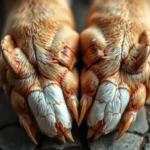
Introduction
Dental health is crucial for the well-being of all dogs, but it becomes especially important as they age. Senior Chihuahuas with bad teeth often face various dental issues that can significantly impact their quality of life. As Chihuahuas get older, they may experience common dental problems such as periodontal disease and tooth decay, which can lead to pain and discomfort. Addressing these dental health issues is essential not only for maintaining a happy and active lifestyle but also for ensuring their overall health and longevity.
In this article, we will explore how to help senior Chihuahuas with bad teeth by understanding the common dental problems they face, their signs, preventative measures, treatment options, and nutritional support. By being proactive, you can improve your senior Chihuahua’s dental health and enhance their quality of life.
Understanding Dental Health in Senior Chihuahuas
Common Dental Issues
As Chihuahuas age, they become more susceptible to various dental problems. Here are some of the most common dental issues they may face:
-
Periodontal Disease: This is the most prevalent dental problem among senior dogs. Bacteria accumulate on the teeth, leading to plaque, tartar, and gum inflammation. If left untreated, it can result in tooth loss and severe pain.
-
Tooth Decay and Loss: Just like humans, dogs can suffer from cavities and tooth decay. This can be particularly painful and may lead to further complications if not addressed promptly.
-
Oral Tumors: While not as common, senior Chihuahuas can develop tumors in the mouth that may affect their ability to eat and cause significant discomfort.
Signs of Dental Problems
Recognizing the signs of dental issues early can make a significant difference in treatment outcomes. Here are some indicators that your senior Chihuahua may have dental problems:
-
Bad Breath (Halitosis): While dog breath is common, an unusually strong odor can be a sign of dental disease.
-
Difficulty Eating or Chewing: If your Chihuahua is struggling to eat or seems hesitant to chew, it may be due to dental pain.
-
Swollen or Bleeding Gums: Healthy gums should be pink and firm. If you notice swelling or bleeding, it’s time to consult your veterinarian.
-
Changes in Behavior: Reluctance to play with toys or engage in activities they once enjoyed can be an indication of discomfort or pain.
Importance of Dental Health for Senior Chihuahuas
Impact on Overall Health
The connection between dental health and systemic health cannot be overlooked. Poor dental hygiene can lead to bacteria entering the bloodstream, potentially affecting vital organs such as the heart and kidneys. Regular dental care is crucial to prevent these serious health complications.
Quality of Life
Dental pain can significantly affect a dog’s quality of life. If a senior Chihuahua is in pain, they may become less active, less social, and more irritable. Regular check-ups can help detect dental issues early, allowing for timely intervention and pain management, ultimately leading to a happier, healthier dog.
Preventative Measures for Dental Care
Regular Dental Check-ups
Routine veterinary visits are essential for maintaining your Chihuahua’s dental health. It is generally recommended that senior dogs receive dental check-ups at least once a year. During these visits, your veterinarian will perform a thorough examination of your dog’s mouth and teeth, assessing for any signs of disease or decay.
During a dental check-up, you can expect:
- A complete oral examination
- Possible dental X-rays to assess hidden problems
- Professional cleaning to remove tartar and plaque
Home Dental Care Routine
Implementing a home dental care routine can greatly benefit your senior Chihuahua. Here are some effective brushing techniques:
-
Choose the Right Tools: Use a dog-specific toothbrush and toothpaste, as human products can harm your dog.
-
Start Slowly: If your Chihuahua is not used to having their teeth brushed, start by letting them taste the toothpaste and gradually introduce the toothbrush.
-
Daily Brushing: Aim to brush your dog’s teeth daily, but even a few times a week can make a significant difference.
Dental Chews and Treats
Incorporating dental chews and treats into your Chihuahua’s diet can help promote better oral health. These products are designed to reduce plaque and tartar buildup while providing a tasty reward. When selecting dental chews, look for:
-
Veterinary Approved Products: Choose chews that have been approved by veterinary dental associations.
-
Ingredients: Opt for chews made from natural ingredients that are safe and beneficial for your dog.
Some recommended brands include Greenies, Virbac C.E.T. Enzymatic Dental Chews, and Nylabone.
Treatment Options for Senior Chihuahuas with Bad Teeth
Professional Dental Cleaning
If your senior Chihuahua is suffering from significant dental issues, professional dental cleaning may be necessary. This procedure typically involves anesthesia, allowing the veterinarian to clean the teeth thoroughly without causing stress to your dog.
Safety Considerations: While anesthesia is generally safe, it’s crucial to discuss any concerns with your veterinarian. They may perform pre-anesthetic blood work to ensure your dog is healthy enough for the procedure.
Extraction of Damaged Teeth
In cases of severe decay or periodontal disease, your veterinarian may recommend extracting damaged teeth. This procedure can alleviate pain and prevent further complications. Post-extraction, your vet will provide care instructions to ensure a smooth recovery.
Medications and Pain Management
If your senior Chihuahua is experiencing dental pain, your veterinarian may prescribe medications to manage discomfort. Common options include:
-
Pain Relief Medications: Non-steroidal anti-inflammatory drugs (NSAIDs) can help reduce pain and inflammation.
-
Antibiotics: If there is an infection associated with dental issues, antibiotics may be necessary to clear it up.
Nutritional Support for Dental Health
Diet Considerations
A balanced diet plays a vital role in maintaining your Chihuahua’s dental health. Look for dog foods that promote dental hygiene and contain specific ingredients to reduce plaque buildup. Some recommended dog foods may include:
-
Dry Kibble: Crunchy kibble can help mechanically scrub the teeth as your dog chews.
-
Dental-Specific Formulas: Some brands offer formulas specifically designed to support dental health.
Additionally, consider supplements that promote oral health, such as omega-3 fatty acids, which can help reduce inflammation.
Hydration and Its Role
Proper hydration is essential for your dog’s overall health, including their oral health. Water helps wash away food particles and bacteria that can lead to dental problems. To encourage your senior Chihuahua to drink more water:
-
Fresh Water: Always ensure your dog has access to fresh, clean water.
-
Water Fountains: Some dogs prefer drinking from pet water fountains, which can encourage them to drink more.
Home Remedies and Natural Solutions
Natural Teeth Cleaning Solutions
There are several natural ingredients that can assist in maintaining your Chihuahua’s dental health. Here are some safe options for homemade dental care:
-
Coconut Oil: Known for its antibacterial properties, coconut oil can be used to help clean your dog’s teeth when applied with a toothbrush.
-
Baking Soda: A small amount can be mixed with water to create a paste for brushing, but use sparingly to avoid upsetting your dog’s stomach.
While natural remedies can complement dental care, they should not replace professional veterinary care.
Herbal Supplements
Herbal supplements may also support dental health. Some popular options include:
-
Neem: Known for its antibacterial properties, neem can help reduce plaque and promote healthier gums.
-
Spirulina: This blue-green algae is rich in nutrients and can help improve overall health, including dental health.
Always consult with your veterinarian before introducing new supplements to your dog’s diet, as they can provide guidance on the appropriate brands and dosages.
Conclusion
Maintaining dental health is essential for senior Chihuahuas, as it directly impacts their overall well-being and quality of life. By understanding common dental issues, recognizing the signs of dental problems, and implementing preventative measures, you can significantly improve your dog’s dental health.
Regular veterinary check-ups, a consistent home dental care routine, and proper nutrition all play critical roles in ensuring that your senior Chihuahua remains happy and healthy. Remember, proactive care is key to preventing dental issues and maintaining a high quality of life for your beloved companion.
Taking charge of your Chihuahua’s dental health is not just about their teeth—it’s about ensuring they enjoy their golden years to the fullest.









